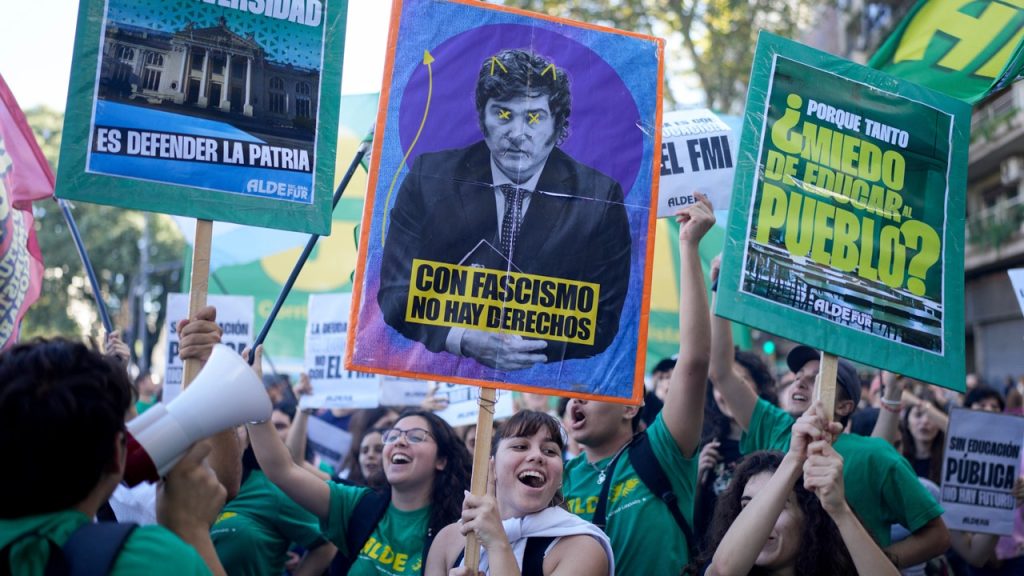Argentina’s libertarian President Javier Milei is facing backlash from students and professors at the University of Buenos Aires due to budget cuts that have led to a series of crises on campus. The university, considered one of the best in Latin America, has been experiencing issues such as power outages, lack of basic services, and overcrowded lectures. Milei, on the other hand, is proud of his efforts to achieve a zero deficit and has recently announced Argentina’s first quarterly fiscal surplus since 2008, attributing it to his administration’s austerity measures and spending cuts.
The protests against the budget cuts have gained momentum, with students and professors in Buenos Aires and other cities across the country taking to the streets to defend their right to education. Public universities in Argentina have historically been free for both domestic and international students, drawing students from around the world to pursue higher education. The government has attempted to justify the cuts as a way to increase efficiency and fiscal transparency, but critics argue that the measures are crippling the university system and threatening the academic future of hundreds of thousands of students.
The University of Buenos Aires, in particular, has warned that without a rescue plan, it may have to shut down, leaving hundreds of thousands of students without access to education. The university, which has a rich intellectual tradition and has produced several Nobel Prize winners, is facing a budget crisis that is exacerbated by the country’s high inflation rate. Teachers have seen their salaries decline significantly, with some earning as little as $150 a month, making it difficult for them to make ends meet and continue their research and academic work.
President Milei, who took office in December, inherited an economy in turmoil and has been trying to implement drastic measures to stabilize the country’s finances. The government has promised some financial support to public universities, but many argue that it is not enough to cover the shortfall caused by the budget cuts. The protests and demonstrations against the austerity measures underscore the deep divisions within Argentine society and the challenges facing the government as it tries to navigate a delicate balancing act between fiscal responsibility and social welfare.
Despite the government’s attempts to portray the budget cuts as necessary for long-term economic stability, many students and professors fear that the measures will have a devastating impact on the country’s education system and future generations. The protests against President Milei’s policies highlight the growing discontent among Argentines who feel marginalized and neglected by their government. As the country grapples with a deepening economic crisis, the fate of public universities and the thousands of students who rely on them for higher education hangs in the balance, raising questions about the future of Argentina’s education system and the broader implications for society as a whole.


